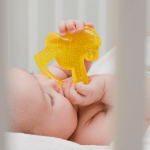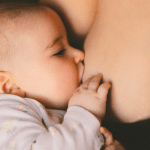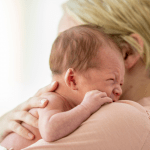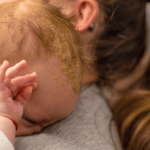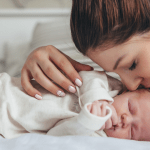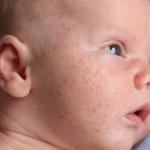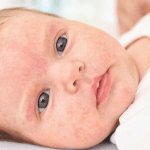Let’s talk about something I like to call “dangerous inheritance”.
What I mean with that, is when chemicals pass from mom to baby. And it is less trivial and less obvious than you may think.
There are three ways these chemicals can pass from mother to baby:
First, from what moms put ‘on’ their skin. This, baby’s skin absorbs directly. Let’s say mom wears makeup, that has parabens, or always wears perfumes, which have chemical fragrances. Then mom goes and cuddles her baby. This allows these toxic chemicals to come in contact with the baby.
Second, from what moms ‘ingest’, and babies will ingest from their mothers when breastfeeding. A good example of this is BPA. When a mother consumes something (for example – canned foods, where the can has a BPA lining, and ingests this chemical preservative as it leaches into the contents of the can, and then she passes it on to her baby.
Third, from what is ‘around you’, in your environment. Lots of household cleaners, products, furniture and carpets contain chemicals that you probably don’t even know about… Checkout our 10 Day Detox Guide for more information.
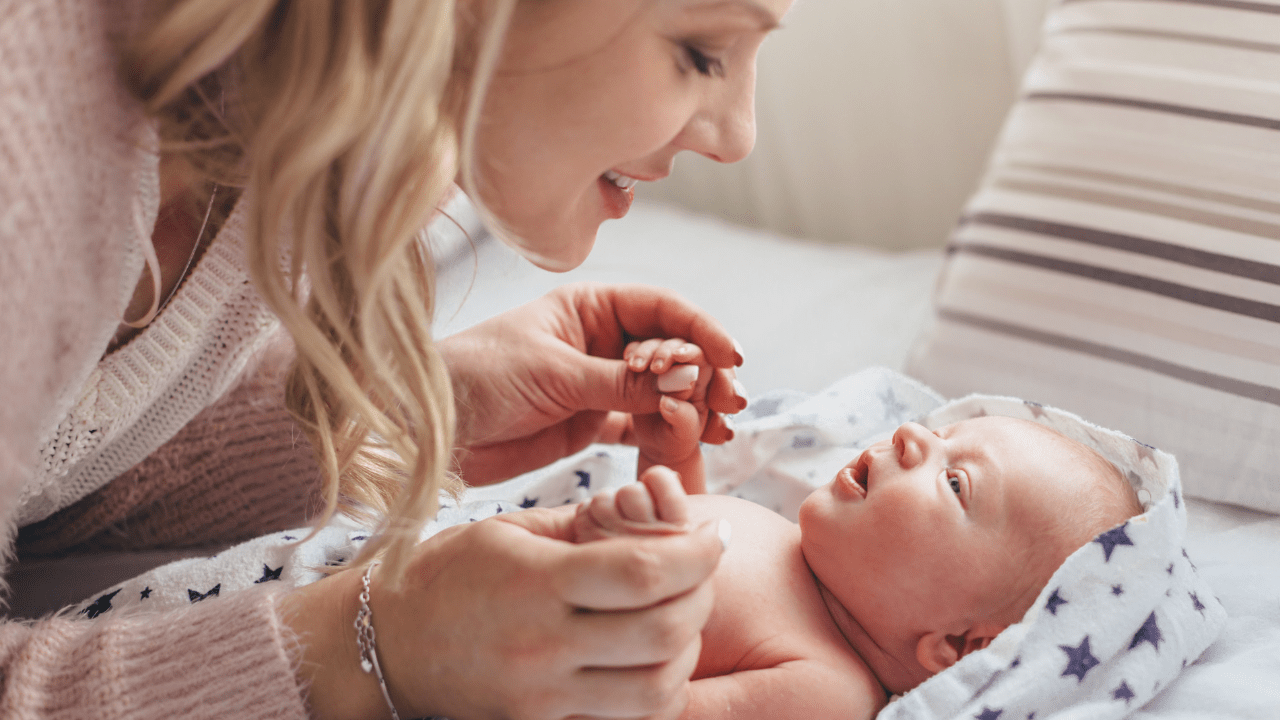
Since baby spends a lot of time in the house, crawling about, and putting things in their mouths, they are exposed to chemicals more easily.
Most of these chemicals are responsible for triggering
- asthma symptoms,
- eczema flare-ups
- skin irritations
- endocrine disruption
- and the development of other allergies.
So, how do chemicals pass from mom to baby?
1. Everyone’s first environment is the womb, and many toxins are travelling through mom’s body and crossing the placenta into the developing child. This way, many toxins can harm babies before they even take their first breath!
Let’s take a look at the dangerous chemical triclosan, which is found in clothing, kitchenware,
furniture, toys, medical devices, antibacterial soaps & body washes, deodorants, AND even toothpastes.
Did you know that it can bioaccumulate in your fat cells for long periods of time? Did you also know that triclosan is now detectable in human breast milk, blood, and urine samples?
So, when you are exposed to it, your body collects and stores more and more of it, and then passes it on to your child if you are breastfeeding.
2. Now let’s look at skin to skin contact from baby to mother. The skin is the largest organ, and your baby rapidly absorbs much of anything it comes in contact with, because baby skin is more permeable. So when you think about what you could be passing on to your child, you may realize there are many ways!
From your hands, when you touch your baby (bacteria, germs, & chemical preservatives in your hand lotions)
From your breasts when you nurse baby or hold baby there – think of triclosan like I mentioned earlier and how it is found in breastmilk.
From your hair when you carry or hold your baby – chemical preservatives inside your shampoo and conditioners, or gels and waxes.
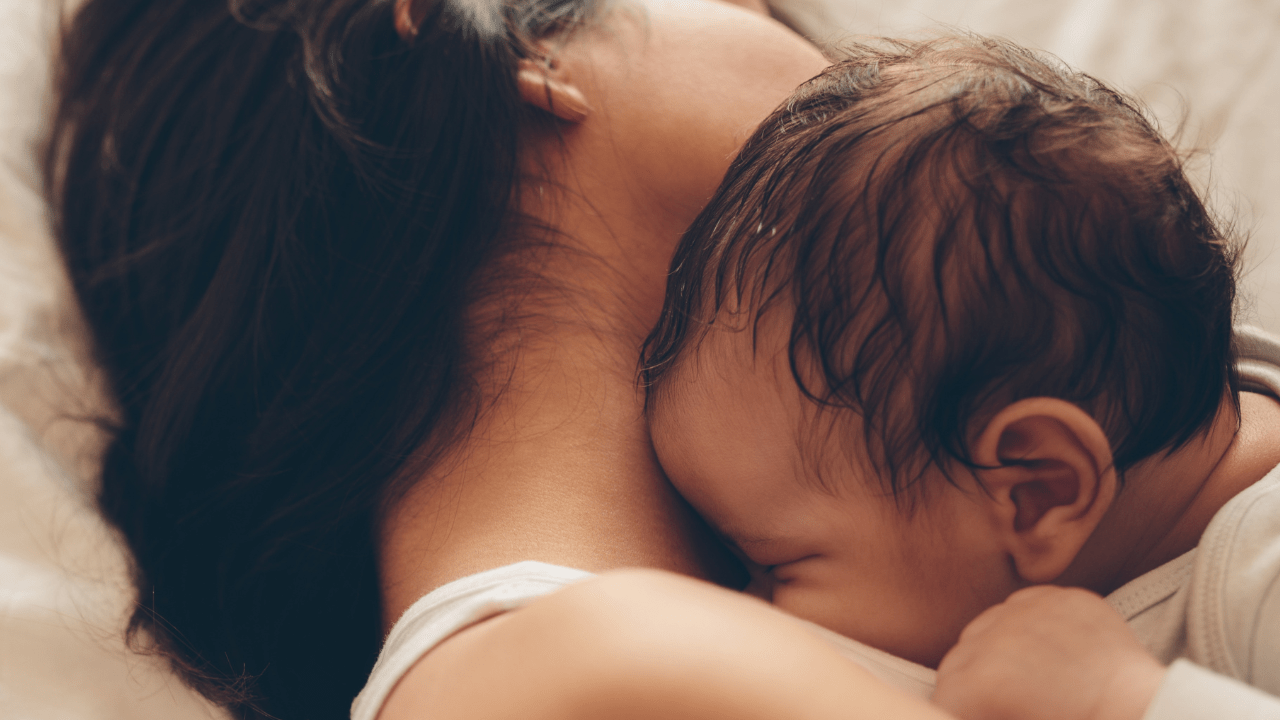
From your face when you cuddle with baby or kiss – chemical preservatives that are inside your lotions, moisturizers and makeup!
From your perfumes and your other products with fragrances – just fragrances alone represent approximately 3000 different chemicals that you can expose your baby to!
As you see, there are many ways to pass on chemicals from mom to baby than one may initially think. And your baby’s skin is thinner and more delicate and absorbs things more easily than your adu skin.
When it comes to the health of you and your little one, you probably would not want to ignore the issue of how chemicals find their way into your baby.
A great step for each mom is to eliminate chemicals as much as possible. A simple and very effective step, is to only use safe, water-free skin care products for mom and baby. Keep in mind that every skin care product or shampoo that contains water will contain chemicals. And we know what chemicals do to baby.
By buying safe, water-free, skin care products that are chemical-free, you avoid unknowingly passing on dangerous chemicals to your child.


